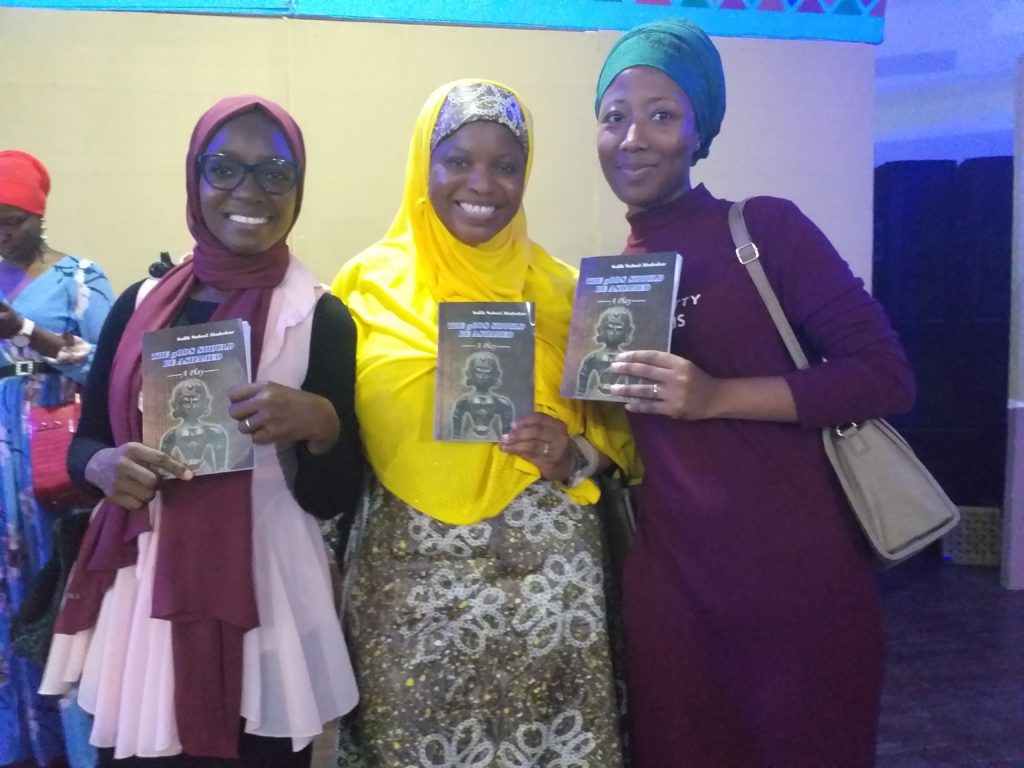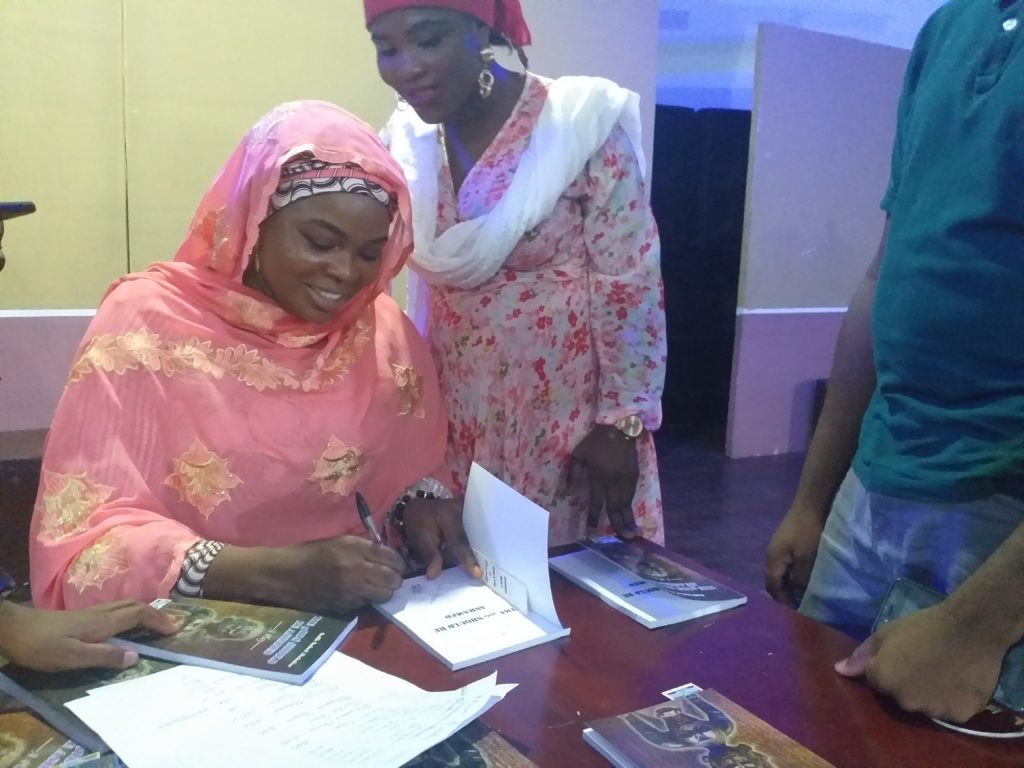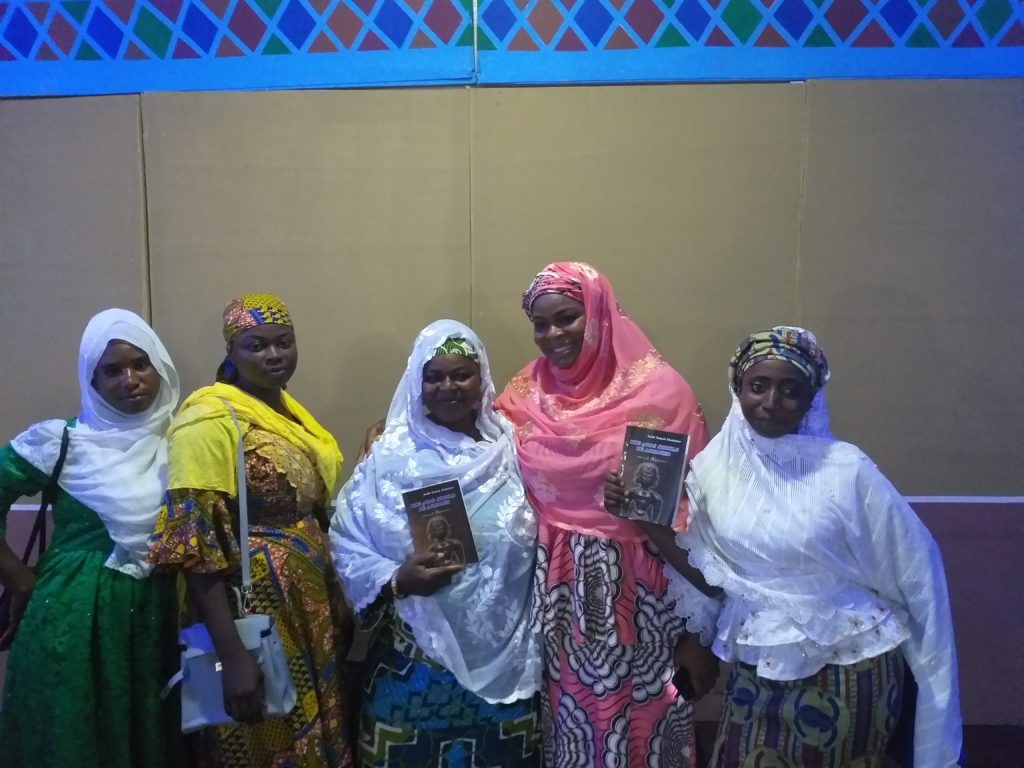Humans search for love in rather obscure places and in one’s quest to find happiness and feel that sense of belongingness one may go to the extreme, fighting all odds to find that one person.
Some defy parents, tradition, religion to be with that one person and when it all ends in near-death situation some tend to question why the gods look on while such fatalities occur.
Why do the gods always look on even as the wells dry?
Why do gods always never curb the injustice but rather punishes the perpetrators?
A romantic play that questions the role the “gods” play in matters of the heart was launched at the Kathy Knowles auditorium of the Nima/Mamobi community learning centre on December 21, 2019.
The auditorium was filled with euphoria on Saturday, the night of the launch of Salih Suhad Abubakar’s new play and book launch “the gods should be ashamed.”
Many dignitaries including Imams, leaders, lawyers, journalists, business moguls, academics among others who graced the occasion were beaming with smiles as the stage play was going on.
Patrons showered praises on the esteemed playwright and author, Salih Suhad Abubakar, for such a youthful show of exuberance.

The play, “the gods should be ashamed” is a dramatic tale that talks about the secrets and tension in aristocratic homes and the resulting clash between the will of the gods and the desire of mortals.
The two love birds, Kevu and Joki are both ardent believers in the gods are faced with misery as they both fight the odds to still be together.
Kevu, the pride of the land of Abronye, born in wealth and affluence and the only son of the blue-blood Tetevu household after rejecting many formidable damsels dares to fall in love with beautiful and adorable Joki, daughter of Kuti, an outcast.
His family rejects the proposition of marriage outright. Though the marriage holds, his family’s expectation of an heir is not met, leading to the arrival of Toji, daughter of the plutocrat, Faju, to the household.
In the end, the gods bless the second wife, Toji with sons which goes to negate why the gods who are aware of everything would allow Job’s marriage to suffer.
And this development makes the first wife, Joki question the gods for her inability to have children.
Joki goes back to the gods to bless her with a child. The gods heed to her plea but unfortunately offers her a child under condition.
In the latter part of the play, Joki becomes pregnant but in the eight-month loses the child which goes to buttress what the gods said, “the child would never be a man or a woman and who would not be killed by any mortal. ”
In her sorrow, she commits suicide and her husband also ends his life.

Speaking to the playwright, after the book launch, Miss Abubakar tells us what inspired her to write this book.
“The inspiration is wild because it comes from diverse sources. Being a Muslim whether Christian or Muslim.
“You are initiated into believing there’s only one God. I believe I have a lot of faces and a lot of things come to play in the human world and every creed, superstition should supersede everything and that is where I would say the inspiration comes from, ” she said in an interview with TheGhanaReport.com.
“You know African traditional setting, before the advent of this Christianity, Islam Africans worshiped their own way and we have believed there is some kind of power that preordaines or predestines whatever we are set to do.
So, my line of thought is that, the gods should be aware of all the things that will happen; Everything is prearranged so that struck me most is that if the gods are really there to protect man and want what is good for man then why they should wait to see a lot of bad things unfold before they say they knew what was going to happen.”
Miss Abubakar argues that the gods should be ashamed because every step of the way, they had a hand, so one wonders why they did not stop the sad events from unfolding.
But for every fruitful venture, there’s bound to be some form of challenges and the major constraint any writer would tell you is that “ideas do not flow in one piece, I started with this piece in 2016, also financial constraint and time is another factor.”
Miss Abubakar further advised parents to allow children to make their own mistakes and own them.

She believes doing this will help them grow, as according to her, it is part of the learning process.
“It is better to make your own mistakes and own it than to be forced to make the mistakes and you end up blaming someone else, ” she said in an interview with TheGhanaReport.com after the book launch.
Book Review
President of the Ghana Association of Writers, Francis Gbormittah, said the book has a strong and convincing narrative structure, imposed by the use of the storyteller. The use of the storyteller, a dramatic approach, also adds more details to the story.
According to him, the themes of the story are very realistic and relevant but also very provocative.
He, however, mentioned, the playwright creatively uses modes that give room to discuss, with ease, the delicate issue of tradition and belief systems in African settings and their negative results on the society and its members.
The value for traditions and the need to follow these traditions, according to him are raised in the story in ways such as the class systems, marriage, birth of a male child, womanhood and more.
About the Author
Salih Suhad Abubakar holds a Masters degree in Education and a Masters degree in Journalism from Kwame Nkrumah University of Science and Technology (KNUST) and the Ghana Institute of Journalism respectively.
She also holds a Bachelor degree in English from the KNUST.
She had her Secondary school education at the Ghana Lebanon Islamic Senior High School and her basic education at Winners International School.
She served her national service term as a tutorial assistant at KNUST.
Miss Abubakar has so far published a collection of short stories, novels and anthologies of poems including ‘Cry of destiny, A letter to be delivered, Caution from the grave, Tales of the Unseen, The man in the woman, Forever or Never, Rediscovery’ among others.
















